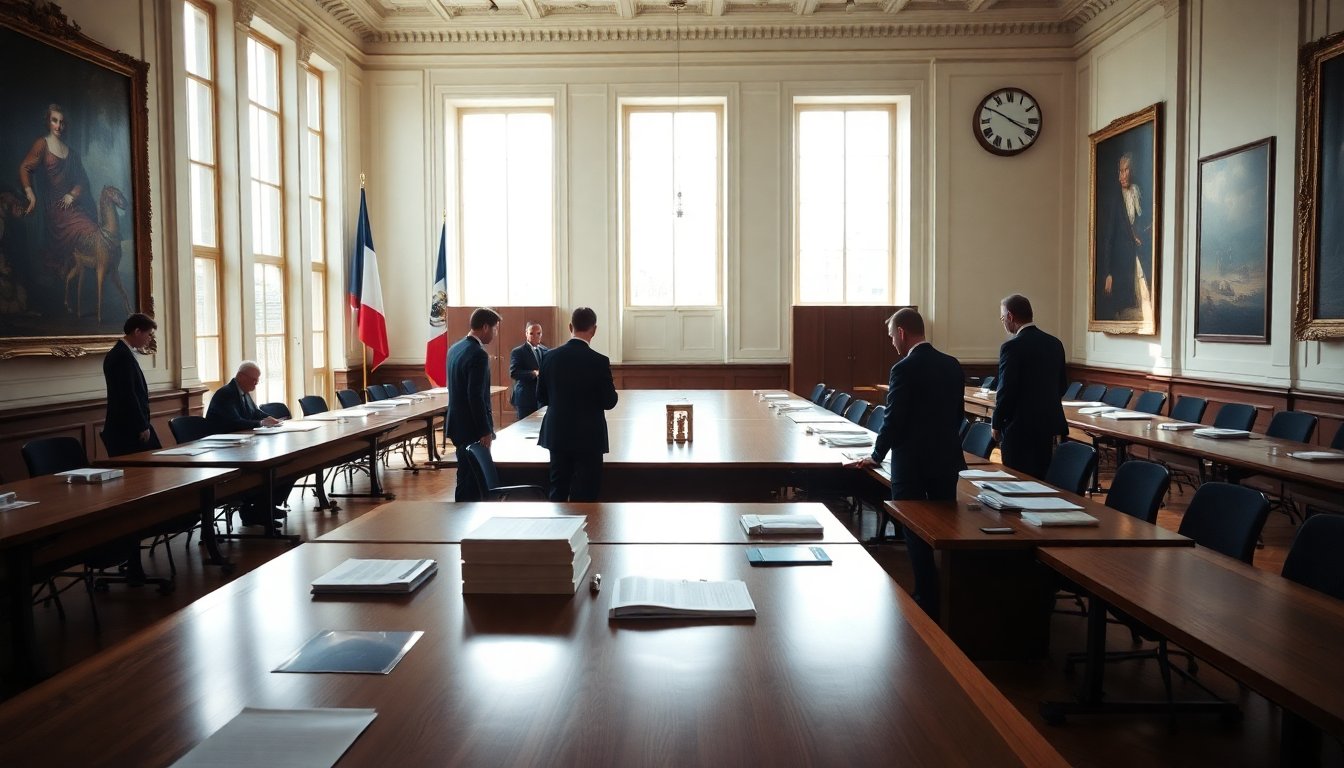Table of Contents
France is navigating a political crisis following the abrupt resignation of its prime minister, Sébastien Lecornu, earlier this week. This unexpected decision sent shockwaves throughout the nation, raising concerns about the stability of the government and the future of President Emmanuel Macron‘s administration. Just days after his resignation, Lecornu was reinstated, highlighting the complexities of French politics and the urgent need for effective governance.
Resignation and immediate reappointment
In a surprising development, the 39-year-old Lecornu resigned less than 24 hours after presenting his new cabinet. His initial team, which included mostly loyalists of President Macron along with a few conservative figures, faced backlash from opposition groups and discontent within the minority coalition. This reaction rendered Lecornu’s position unstable, resulting in his rapid departure.
Despite the upheaval, Macron quickly reappointed Lecornu late on Friday. In a message on X, the prime minister expressed his sense of duty to lead again, emphasizing the need to focus on budget creation ahead of the upcoming legislative deadline. His remarks highlight the urgency of stabilizing the government amid increasing dissatisfaction.
challenges ahead for the reinstated prime minister
Lecornu’s return to office comes with significant challenges. His previous term faced scrutiny over cabinet selections, which many attributed to President Macron’s strong influence. He cited “partisan appetites” as a key factor in the government’s difficulties. Lecornu stressed the importance of future ministers setting aside personal ambitions as the country prepares for the upcoming 2027 elections. This emphasis on unity amid political fragmentation highlights the considerable obstacles facing the reappointed prime minister.
Political landscape and reactions
President Macron’s decision to reinstate Stéphane Lecornu comes as his popularity declines and he faces growing isolation within his party. Former prime minister Édouard Philippe has publicly suggested that Macron should consider stepping down, highlighting dissatisfaction even among former allies. Additionally, Gabriel Attal, the head of Macron’s party, has called for an outsider to assume the prime ministerial role, indicating a demand for new governance strategies.
Opposition parties, including the far-left France Unbowed and the far-right National Rally, have expressed intentions to challenge any government led by Lecornu. These parties control over a third of the seats in the National Assembly, which could create significant obstacles for his administration. Jordan Bardella, president of the National Rally, criticized Lecornu’s reinstatement as “a democratic disgrace,” underscoring the tense political environment.
Seeking compromise amidst division
French President Emmanuel Macron initiated a crucial meeting with leaders from various political factions, intentionally excluding specific opposition groups. The objective of the discussions was to chart a course that could secure majority support within the National Assembly. However, the results seemed to disappoint many participants, leaving them uncertain about Macron’s intentions.
Limited concessions and rising tensions
During the meeting, Macron indicated a readiness to reconsider contentious reforms, especially the law that raised the retirement age. While he proposed delaying gradual adjustments, critics viewed this suggestion as insufficient. Olivier Faure, leader of the Socialist Party, emphasized that his party would not hesitate to hold the government accountable if significant changes were not implemented.
Pressure mounts on Prime Minister Lecornu as he embarks on his second term. He faces challenges from entrenched opposition and must address growing public dissatisfaction. This situation will test both his leadership skills and the stability of Macron’s government.


